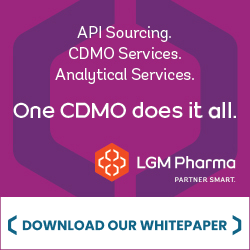
This week, Phispers tells us why David Hung’s taking charge as CEO of Axovant could signal the revival of an Alzheimer’s compound shelved by GSK. While, the FDA has extended compliance date for submitting DMFs in electronic format, there are also indications that there will be more FDA inspections in India. Plus, there is news on companies like Fresenius, Stada, Ajanta Pharma, Merck and Teva. Read on.
FDA
extends compliance date for electronic DMF submissions to May, 2018
On April 7, the US Food and Drug Administration (FDA) announced it is extending the compliance date for submitting DMFs in Electronic Common Technical Document (eCTD) format to May 5, 2018.
“DMF submissions that are not submitted in eCTD format after this date will be rejected,” the FDA website said.
“Presentations on submitting in eCTD format created prior to April 7, 2017 will have the incorrect compliance date for DMFs,” it added. Electronic submissions of Drug Master Files (DMFs) were supposed to become mandatory from May 5, 2017.
The news coincides with the US Senate’s confirmation hearing for Scott Gottlieb, on April 7. Gottlieb was President Trump’s nominee to be the next Commissioner of the FDA.
Gottlieb was with the FDA when the regulator launched its Pharmaceutical cGMPs for the 21st Century initiative. Out of five guidance documents listed as part of this initiative, only one has been finalized.
With Gottlieb heading back, Ajaz Hussain, (former FDA deputy office director and president of the National Institute for Pharmaceutical Technology and Education of NIPTE), Vadim Gurvich (executive director of NIPTE) and Peter J. Pitts (president of the Center for Medicine in the Public Interest and a former FDA associate commissioner) shared their perspective on how Trump and the FDA can create a pharmaceutical manufacturing renaissance in a blog posted on Morning Consult.
Axovant appoints new CEO and revives ghosts of GSK’s billion dollar mistake
After selling Medivation to Pfizer for US $ 14 billion and exiting with US $ 354 million for himself, David Hung is now the CEO of Axovant, the company which we wrote about two years ago, as we asked the question — Did a 29-year old show GSK that it made a billion dollar mistake?
Back in December 2014,Vivek Ramaswamy, CEO and Founder of Roivant Neurosciences and Axovant, had bought an old Alzheimer’s drug that GSK had dropped for US $ 5 million. In October 2014, Roivant had spun off a subsidiary by the name of Axovant, which then bought the GSK drug. GSK had shelved the compound — 5HT6 — after testing it in 13 trials and on 1,250 patients.
Six months after purchasing the compound from GSK, and without doing any clinical development, the drug resulted in the biggest biotech IPO ever for Axovant, which got valued at US $ 2 billion. Since then, Ramaswamy has been setting up more companies.
Throughout, Ramaswamy has recruited high-profile executives to run his companies. And who could be more high profile than Hung? The stock market cheered his appointment — Axovant’s stock was up 28 percent earlier this week after Hung was announced its CEO.
Axovant is looking for positive data that GSK had gathered for its 5HT6 Alzheimer’s drug. And a number of senior players in the industry say Axovant has a decent shot at taking the successful dose back into the clinic. With Hung joining, it seems the drug discarded by GSK does indeed have merit.
Fresenius
in talks to buy Akorn; Stada sold for US $5.6 billion
Fresenius SE said it is in talks to buy US generic drugmaker - Akorn Inc. Though discussions are underway, there is no certainty of a deal, Fresenius said. A spokeswoman for Akorn declined to comment.
The CEO of Fresenius, Stephan Sturm, who took charge in July 2016, has been expanding the group’s global reach through acquisitions. Last year, the company bought Spanish hospital group IDC Salud Holding SLU, also known as Quironsalud, for US $ 6.11 billion (Euro 5.76 billion) in the company’s largest-ever acquisition.
Akorn could complement Fresenius’ Kabi medicines division, which specializes in intravenous drugs, and accounts for about a fifth of the company’s revenue.
Stada sell-off: Stada Arzneimittel AG has been sold to Bain Capital and Cinven for US $ 5.6 billion (Euros 5.3 billion), after a long-fought takeover contest. The sell-off will give the equity firms control of one of the last independent generic-drug businesses in Europe.
The deal would give buyers access to German and Russian markets for OTC and copycat medicines. It marks another step in the consolidation of the generics industry.
FDA inspections in India to rise, says Edelweiss Securities
India’s pharmaceutical sector is the largest supplier of drugs to the US. However, “quality issues are an ongoing challenge for the Indian pharmaceutical industry,” Mary Lou Valdez, FDA’s associate commissioner for international programs wrote in a blog.
Of the 42 warning letters sent out by FDA’s office of manufacturing quality last year, about one-fifth (9) were addressed to Indian facilities. The number could rise over the next three years as the FDA would inspect 190 facilities that it could not inspect in the past five years, wrote Edelweiss Securities.
FDA inspections in India and China have doubled since 2012. This has led to a spurt in warning letters as well.
GSK to withdraw 600,000 inhalers; no observations for Ajanta
GSK would be voluntarily recalling close to 600,000 Ventolin asthma inhalers across the US, says the FDA. The recall is due to a leak observed in some of the products.
The exact number of inhalers to be recalled, as reported by the FDA, is 593,088. These were produced in GSK’s Zebulon, North Carolina manufacturing facility. This is the second time in just over a year that the plant has faced problems with leaking inhalers.
Ajanta Pharma: On Monday this week, shares of India-based Ajanta Pharma soared by over 5 percent in intraday trading as investors cheered the fact that no observations were issued during a regulatory inspection at its unit.
“Our formulation facility at Dahej (in Gujarat) was inspected by US Food and Drug Administration (FDA) from April 3 to April 7, 2017. At the end of the inspection, no Form 483 was issued to us,” Ajanta Pharma said in a notification to the stock exchanges.
FDA delivers a blow to Merck’s Januvia marketing plan
In 2015, Merck had come out with a massive 14,724-patient study where the data demonstrated that Type 2 diabetes patients could take its flagship DPP-4 drug — Januvia — without increasing their risk for cardio complications. DPP-4 inhibitors work by blocking the action of DPP-4, an enzyme which destroys the hormone incretin.
Merck wanted to use the findings of this survey in a label to help distinguish themselves from same-class rivals like Onglyza, which has risks. However, the FDA recently nixed the idea, handing the pharma giant a complete response letter (CRL).
The CRL covered Merck’s blockbuster Januvia as well as its combos with metformin. However, Merck says it is reviewing the letter and will discuss next steps with the FDA.
Teva’s US $ 3.5 billion buy pays off with FDA approval of Austedo
Last week, the FDA gave its nod for Teva’s promising drug deutetrabenazine, after putting it on hold ten months back due to certain suspicions regarding some metabolites found in patients.
Teva had paid US $ 3.5 billion to acquire Auspex two years back. Teva’s deutetrabenazine is the first deuterated drug to bag an FDA approval.
A deuterated drug is a drug where hydrogen has been replaced by deuterium. A simple swap of six hydrogens with deuterium in an existing drug, Xenazine® (tetrabenzaine), resulted in an improved version of the drug, called deutetrabenzaine or SD-809 (which had been developed by Auspex).
The drug will be sold as Austedo. Due to the presence of deuterium, the drug breaks down more slowly in patients. This way physicians can give the drug less often and at lower doses and still manage great results. The drug is designed to regulate the levels of dopamine in the brain.
The PharmaCompass Newsletter – Sign Up, Stay Ahead
Feedback, help us to improve. Click here
Image Credit : Mission Accomplished - ALS Ice Bucket Challenge by Anthony Quintano is licensed under CC BY 2.0
“ The article is based on the information available in public and which the author believes to be true. The author is not disseminating any information, which the author believes or knows, is confidential or in conflict with the privacy of any person. The views expressed or information supplied through this article is mere opinion and observation of the author. The author does not intend to defame, insult or, cause loss or damage to anyone, in any manner, through this article.”







